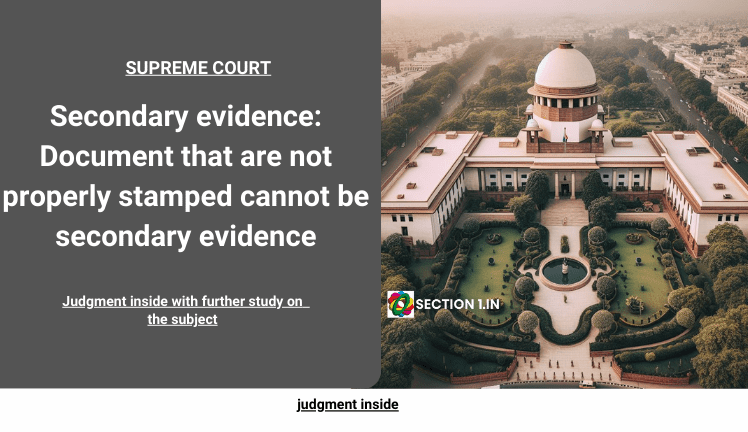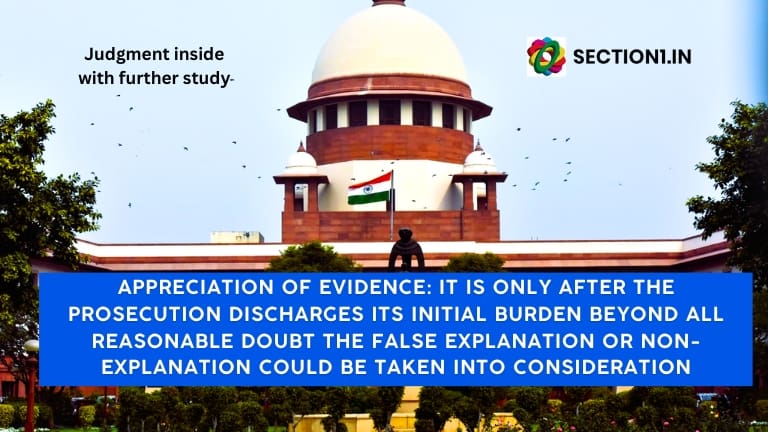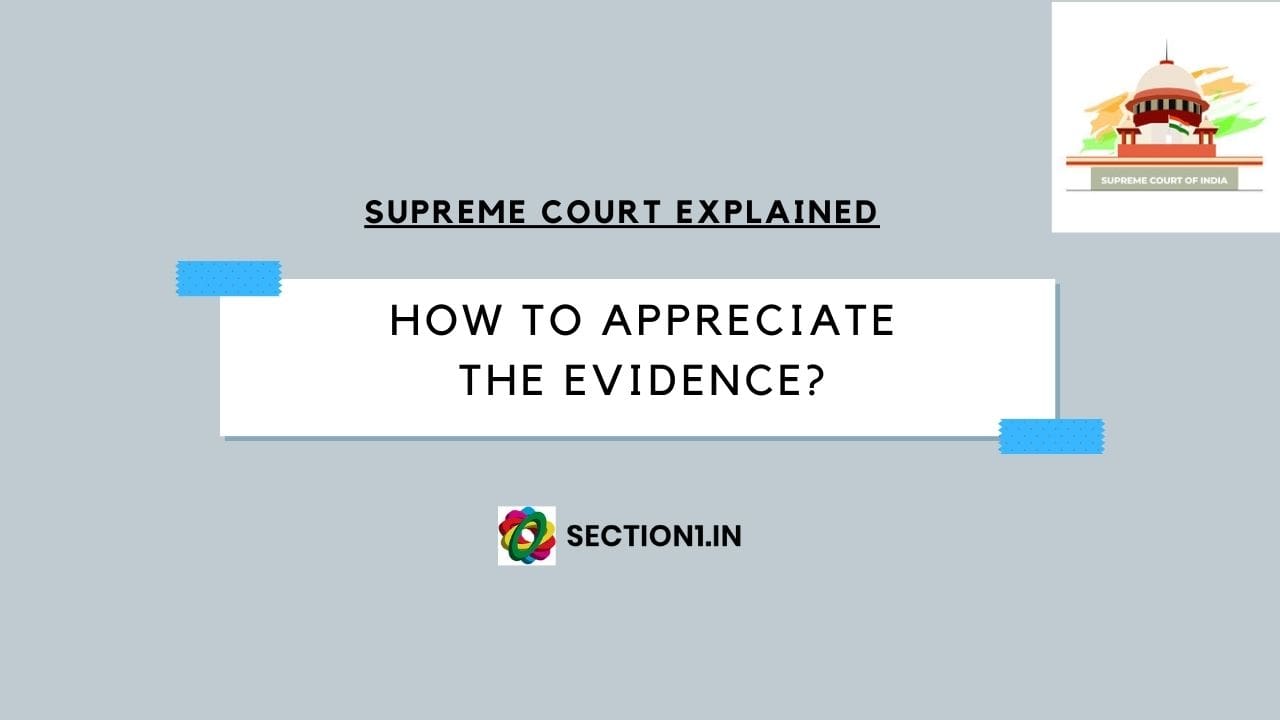Issues to be decided
1. The issues that arise for consideration of this Court in the present appeal are:
1.1 Whether the bar of admissibility created by Section 35 of the Indian Stamp Act 18991 applies to the agreement(s) to sell dated 04.02.1988 executed by the parties?
1.2 Can a copy of a document be adduced as secondary evidence when the original instrument is not in possession of the party?
1.3 Whether, in the facts of the present case, would the decision of this Court in Jupadi Kesava Rao v. Pulavarthi Venkata Subha Rao [(1971) 1 SCC 545 (2-Judge Bench)] be binding as held by both the Courts below?
Original document is with the counsel
29. Plaintiff claims in the application that after executing the document, Defendant kept the original copy, and a photocopy of the same was given to Plaintiff. However, as per the averments made in the application, the Defendant had stated in an affidavit that the documents were not with her but with her counsel.
Analyzing law relating to secondary evidence
30. Before proceeding with the discussion, it is imperative to reproduce the relevant provisions of the Evidence Act and discuss the law relating to secondary evidence:
“Section 61- Proof of contents of documents”
“Section 63-Secondary evidence”
Section 65- Cases in which secondary evidence relating to documents may be given”
Constitution bench explained Primary and secondary evidence
31. Primary and Secondary Evidence stands explained by a Constitutional Bench of this Court in Cement Corpn. of India Ltd. v. Purya [(2004) 8 SCC 270 – 5-Judge Bench) – https://main.sci.gov.in/jonew/judis/26522.pdf] as the former being evidence that the law requires to be given first, the latter being evidence that may be given in the absence of that original evidence when a proper explanation of its absence has been given. The terms “primary and secondary evidence” apply to the kinds of proof that may be given to the contents of a document, irrespective of the purpose for which such contents, when proved, may be received.
32. Section 63 of the Evidence Act gives an exhaustive definition declaring that secondary evidence “means and includes” the five kinds of evidence mentioned therein. Section 65 of the Evidence Act allows secondary evidence to be given of the existence, condition, or contents of documents under the circumstances therein mentioned. It provides for the circumstances in which secondary evidence can be used when the original document is unavailable or inaccessible. It is imperative to adhere to the principles outlined in these sections, including the proper documentation and authentication, to successfully produce secondary evidence in legal proceedings.
Principles for admissibility of secondary evidence
33. After perusing various judgments of this Court, we can deduce the following principles relevant for examining the admissibility of secondary evidence:
33.1 Law requires the best evidence to be given first, that is, primary evidence [Neeraj Dutta v. State (NCT of Delhi) (5-Judge Bench) (2023) 4 SCC 731; Yashoda v. K. Shobha Rani (2-Judge Bench) (2007) 5 SCC 730]
33.2 Section 63 of the Evidence Act provides a list of the kinds of documents that can be produced as secondary evidence, which is admissible only in the absence of primary evidence [Yashoda v. K. Shobha Rani (2-Judge Bench) (2007) 5 SCC 730]
33.3 If the original document is available, it has to be produced and proved in the manner prescribed for primary evidence. So long as the best evidence is within the possession or can be produced or can be reached, no inferior proof could be given [Yashoda v. K.Shobha Rani (2-Judge Bench) (2007) 5 SCC 730]
33.4 A party must endeavor to adduce primary evidence of the contents, and only in exceptional cases will secondary evidence be admissible. The exceptions are designed to provide relief when a party is genuinely unable to produce the original through no fault of that party [M. Chandra v. M. Thangamuthu (2-Judges Bench) (2010) 9 SCC 712]
33.5 When the non-availability of a document is sufficiently and properly explained, then the secondary evidence can be allowed [Neeraj Dutta v. State (NCT of Delhi) (5-Judge Bench) (2023) 4 SCC 731]
33.6 Secondary evidence could be given when the party cannot produce the original document for any reason not arising from his default or neglect [Surendra Krishna Roy v. Muhammad Syed Ali Matwali Mirza 1935 SCC OnLine PC 56]
33.7 When the copies are produced in the absence of the original document, they become good secondary evidence. Still, there must be foundational evidence that the alleged copy is a true copy of the original [H. Siddiqui v. A. Ramalingam, (2-Judge Bench) (2011) 4 SCC 240]
33.8 Before producing secondary evidence of the contents of a document, the non-production of the original must be accounted for in a manner that can bring it within one or other of the cases provided for in the section [H. Siddiqui v. A. Ramalingam (2-Judges Bench) (2011) 4 SCC 240]
33.9 Mere production and marking of a document as an exhibit by the Court cannot be held to be due proof of its contents [Neeraj Dutta (supra)] It has to be proved in accordance with the law [H. Siddiqui (supra)]
Secondary evidence as substitute
34. A reading of Section 65(a) of the Evidence Act displays the following:
a. Secondary evidence can be presented as a substitute when the original document/ primary evidence is in the possession of the opposing party or held by a third party;
b. Such a person refuses to produce the document even after due notice,
c. It must be ensured that the alleged copy is a true copy of the original.
Original document was not recovered from counsel
35. Applying the constituents of Section 65 (a) of the Evidence Act to the present facts, in reference to the averments made, we find that the exact status of the documents in question could not be ascertained as one party claims that the other has the said documents and the other has allegedly stated that it was with her counsel. However, the said documents could not be recovered from the said counsel, as per records. In such a situation, therefore, the presentation of secondary evidence could be allowed, if other requirements are complied with.
Not properly stamped document cannot be secondary evidence
39. Thus, if a document that is required to be stamped is not sufficiently stamped, then the position of law is well settled that a copy of such document as secondary evidence cannot be adduced. The present facts, however, differ.
Stamp duty to be decided at the threshold
41. It is a settled position of law that where the question is whether the document is liable to stamp duty and penalty, it has to be decided at the threshold even before marking a document. In the present case, in view of the discussions above, the document in question was not liable to stamp duty.
Parties
VIJAY …Appellant(s) Versus UNION OF INDIA & ORS. …Respondent(s) – CIVIL APPEAL NO. 4910 OF 2023 – 2023 INSC 1030 – 29th November, 2023.
https://main.sci.gov.in/supremecourt/2010/6985/6985_2010_7_1501_48676_Judgement_29-Nov-2023.pdf
vijay vs. u.o.i – secondary evidence
Further study on the subject
How to prove secondary evidence? – Explained
Entire evidence act explained in single judgment
Acquittal by using procedures available in Cr.P.C and Evidence Act to disprove the prosecution case






